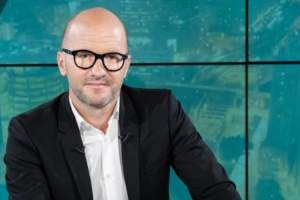La Monnaie de Paris launched an unprecedented, in-depth, qualitative study with Ifop in 2021 to understand the French’s relationship with cash. This wide-ranging consultation continued in October 2022 to identify the place of cash in their lives, their purchases and their relationships with others. Discover the results of this exclusive survey in the joint interview with Marc Schwartz, Chairman and CEO of La Monnaie de Paris, and Stéphane Truchi, CEO of Ifop Group.
Eight out of ten French people say they are attached to cash, a score that resonates particularly strongly
in the current economic and social context. Do you think that currency would be an ally of choice for
tackling this situation?
Marc Schwartz: Cash payments play a decisive role in French people’s daily lives:
it’s the 2nd most widely used method of payment, regardless of age. Its tangible nature naturally gives it
all the more so in times of economic and social tension. With cash, every
French people can pay for their expenses instantly and at no extra cost. At a time when
purchasing power is a major concern, 79% of those questioned said that cash payments
contributes significantly to better management and control of their budget. It also has a definite
in these times of energy sobriety, as it requires no electricity or internet connection to
connection to operate. Its accessibility, free service and resilience make it a key player
to support the French in their daily lives.
A European citizens’ consultation has been launched for 2020 – 2021 concerning the abolition of the
coins of 1 and 2 centimes. This decision would imply rounded prices. What’s your view on this subject?
Marc Schwartz: I find it interesting to note that 43%2 of those polled in this European consultation
european consultation, expect higher prices and other consequences in the event of its disappearance.
In the Ifop survey, this concern is widely shared by 88% of French citizens, who also fear
a rise in prices linked to rounding. The abolition of the 1 and 2 centime coins would not be without
effect on French purchasing power, which is already under severe strain, and would penalize the most fragile
populations. Let’s not forget that more than one in two French people remain attached to these small coins.
The study revealed the noble values associated with money, and in particular the link it enables
to maintain with others. Why is it that cash is more than ever a social glue?
Stéphane Truchi: Generally speaking, paper money has a power that other dematerialized means of payment don’t have
that other dematerialized means of payment don’t have: that of transmitting, interacting and bringing people together. The results of the survey
donations to charities and the most vulnerable people are still mainly made in cash, as are
cash, as do transactions with small retailers. The educational dimension
is also emphasized, with 94% of French respondents saying that it is a way of explaining
the value of money to young people.
If we were to project ourselves into a “cashless” world, 81% of those questioned would be concerned to see
disappear. What are the next challenges for La Monnaie de Paris?
Marc Schwartz: As a monetary institution, our challenge will be to continue to produce a means of payment that is free, universal and accessible to all
universal and accessible to everyone. We’ve been an integral part of French life since
French people since 864, when the Monnaie de Paris was founded. And we see ourselves continuing to do so
for a few more centuries. Our challenge will also be to pursue an intelligent cohabitation with dematerialized
payment methods, and in particular with the arrival of a digital currency from the central bank, the famous
digital euro.
For more information on “La Monnaie de Paris”: visit the website



